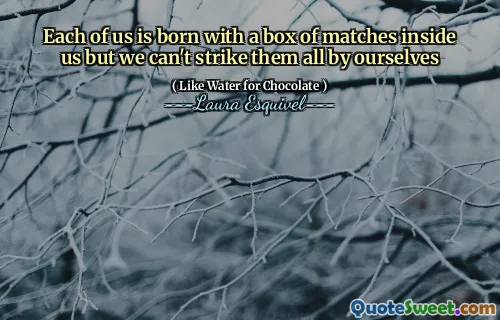
Generally, that is the way history is written, through eyewitness accounts, which do not always correspond to reality.
In "Like Water for Chocolate," Laura Esquivel explores the nature of history and storytelling, emphasizing the role of personal experiences in shaping narratives. Eyewitness accounts, while valuable, can often diverge from objective reality, as they are influenced by individual perspectives and emotions. This highlights the subjectivity inherent in historical records.
Esquivel suggests that understanding history requires a critical approach, recognizing that accounts are filtered through the observer's own lens. This idea invites readers to question the validity of what they hear and read, acknowledging that true reality may be elusive beneath personal interpretations and memories.











